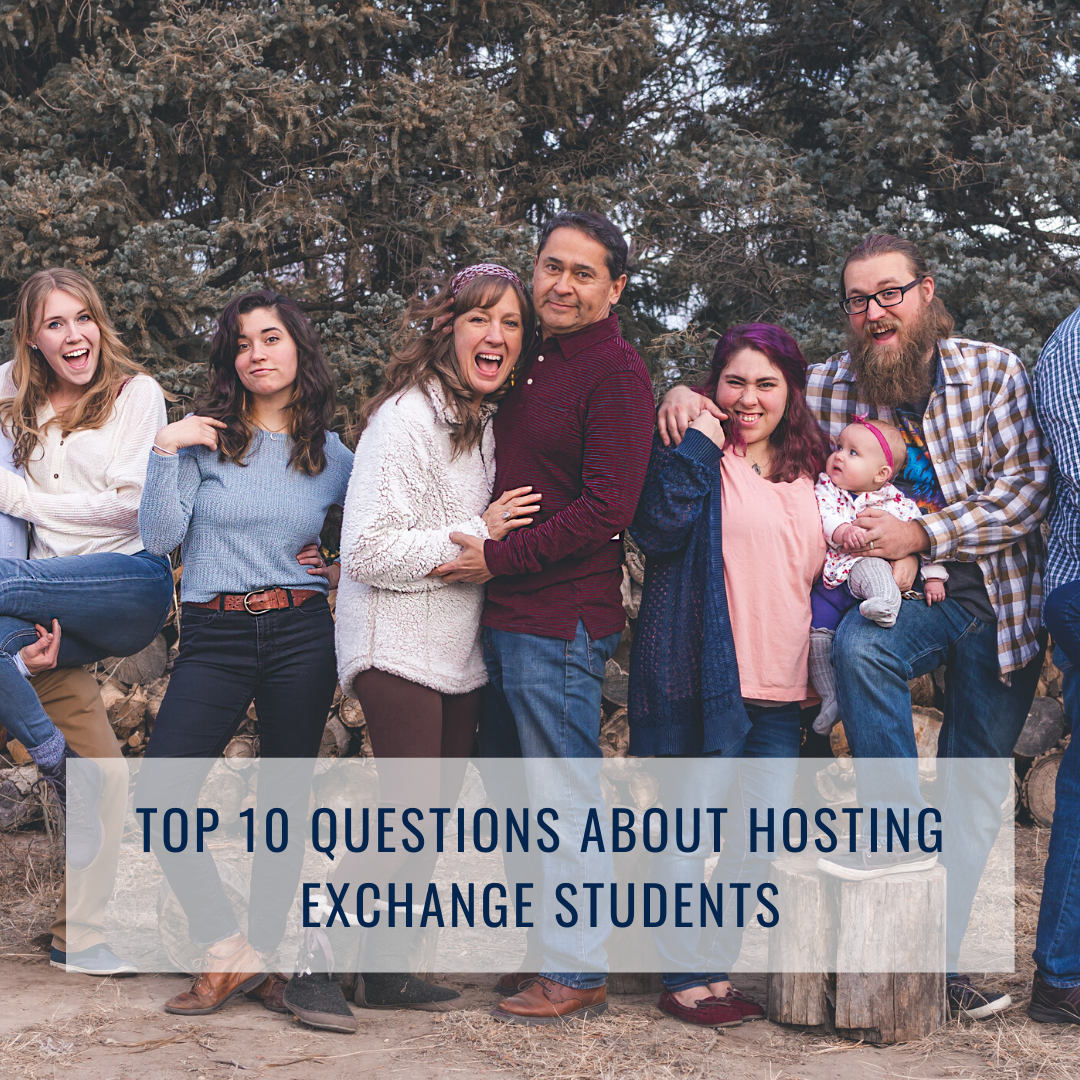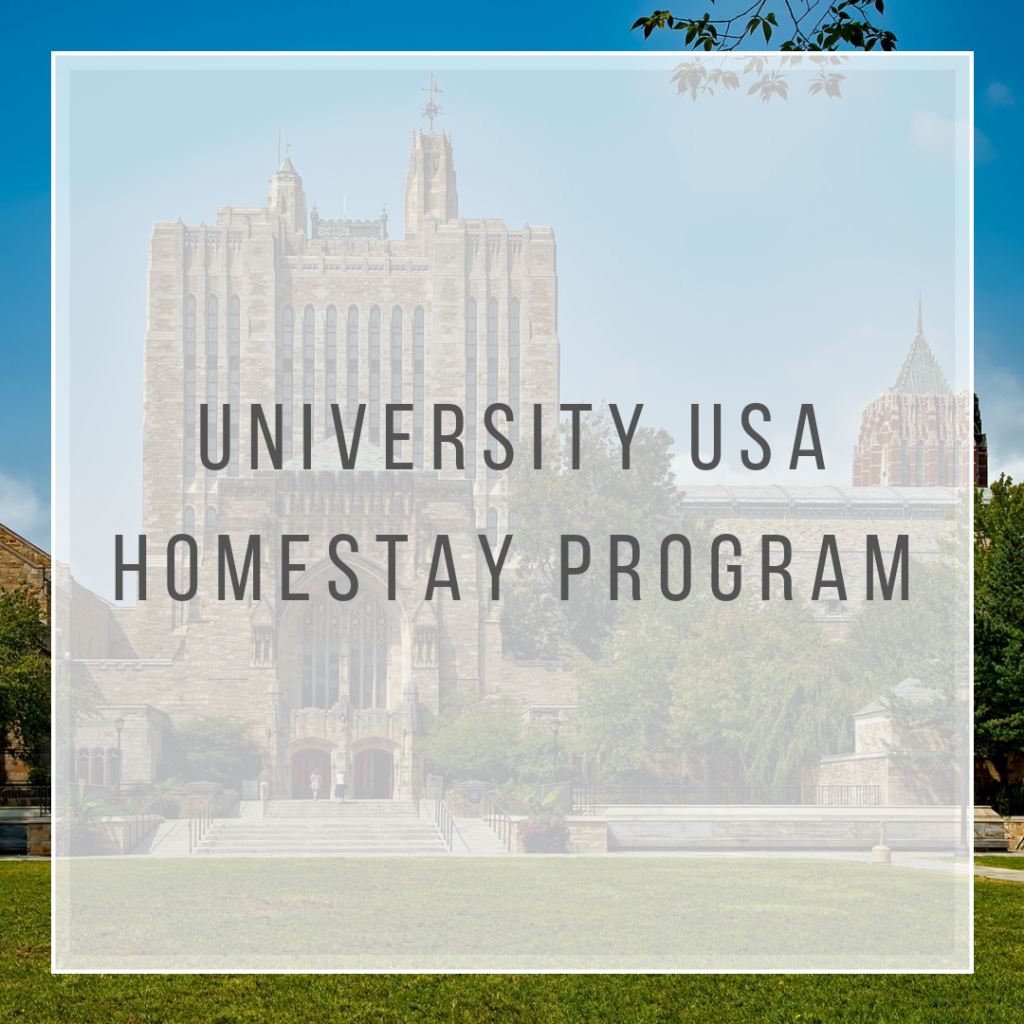
Meet 3 Students From Spain!
Children of All Nation’s, Student Ambassador Exchange program offers opportunities for high school students from Spain to visit the United States, study for a year in a local high school, and live with a host family to learn more about American culture. Are you interested in sharing about your traditions while learning more about Spanish customs? Then our J-1 Visa High School Program is for you!
Host families are expected to provide meals, a room, and a supportive environment for these students to live, grow, and study in. Students will come with their own spending money and an open heart for your family! In return, you’ll get all the benefits of travel and learning about another culture without ever having to leave your home. While families cannot receive compensation for hosting a student, there is an approved IRS deduction of $50 per month families can quote on their taxes. This is a volunteer opportunity to reach out into the world and make it just a little smaller, connecting one family to another across an ocean.
Our three students from Spain have written amazing welcome letters to their potential host families, and we would be excited to tell you more about each one of them. If you think you’re ready to open your heart and home to one of these students, click here to contact an SAE Program Coordinator Today!

Hear From Our Student’s Families!
Gonzalo’s parents say ” Gon as we affectionatly call him is sociable, audacious, and persistent. He’s always been a great friend and when he wants something, he doesn’t stop until he gets it.”
Marcos’s mother says “Marcos is special, intelligent, and empathetic. We leave in your hands the most precious thing in our life hoping that the experience will enrich your life and his.”
Meet Daniel’s parents say “Daniel’s best quality is his big heart! He is a very good boy. He has a great sense of humor and is very outgoing. He’s also quite active with soccer and martial arts.”
If you’d like to find out more about the students in our program, contact a Program Coordinator at info@saeglobal.org to receive a Student Profile! They might be the perfect fit for your family’s new adventure in cultural exchange!


Top 10 Questions About Hosting
Top 10 Questions About Hosting Exchange Students
I get quite a few questions at this time of year about what are the expectations for a family looking to host a high school exchange student. This blog discusses our top ten most asked questions.

- How long is the typical exchange experience for students?
High school students coming to the U.S. to study come for one or two semesters; students generally arrive in August in time for school to start, and leave at the end of the semester (either at the end of the calendar year or towards the end of January, depending on the location) or at the end of the school year in May or June. Some students come for the second semester only. - What makes a good host family? Host families are volunteers and represent the diversity of American culture with varied economic, religious and racial backgrounds. Many host families do not have children, while others have adult children who no longer live at home. Some have teens, some have young children. Host families undergo a screening process to make sure that they are suited for an exchange experience. To become a host family, one adult in the household must be at least 25 years old.
- What are the expectations for a host family?
Host families provide room, board, and a family environment. “Room” requires a bed, storage space, and a place somewhere in the home to study, but does not necessarily require a separate bedroom. “Board” requires three meals/day and reasonable snacks. “Family environment” means the student is a member of your family, not a guest! They go shopping with the family, they go to the farmers’ market with the family, and they go to Grandma’s for Thanksgiving with the family. And if they stay out past curfew, they can be grounded like any other teen member of the family. - Are host families paid?
The U.S. government does not allow payments to host families. Host families are eligible to receive a charitable tax deduction on their U.S. federal tax return of $50/month for each month the student lives in the home. - How expensive is it to host a student?
Host families are required to cover costs associated with at-home meals, any packed school lunches, transportation to reasonable social and extra-curricular activities, and shelter. Students bring their own pocket money to cover routine expenses including cell phone bills, school expenses, clothing and recreation such as trips to the movies. If the student travels with the host family, the student is expected to pay for any airfare or additional hotel costs, etc. Students are required to have their own medical insurance and pay for any medical expenses and insurance copayments. - How are students selected?
Students must go through a screening process for motivation, character, grades, and proficiency in written and spoken English language skills. Student applications include a letter of recommendation, academic transcripts, an essay written in English, and short-answer questions about the student’s family life. Per U.S. Department of State regulations, students must be between the ages of 15 to 18 to take part in the one-semester or academic year program. - How are students prepared for life in an American home?
Before traveling to the United States, students will attend orientation meetings to learn about living with a host family, cultural aspects of American life and practical advice and tips related to travel logistics. The exchange program will probably also provide students and their families with information on American customs and traditions. Another orientation occurs shortly after students arrive in the country. These connections help get your relationship started and help prepare the student for the lifestyle of his or her host family. - Are families allowed to contact students before they arrive?
Once a placement has been finalized with all host family, student, and school authorizations signed and filed, the host family and student can contact one another so that they can establish a relationship before the student arrives in the United States. Contact can be occasional emails, telephone calls, or (more common in today’s world) by Skype or other online connections. - What if it does not work out?
All approved exchange programs are required to have a support system for counseling and advice. As a host family, you should choose your program carefully; make sure you feel comfortable with the local coordinator or liaison, since it is likely that this is the person who will continue to be your primary advisor and contact point. If problems arise between the host family and student, the local coordinator should be available to provide support, with guidance from the program’s national office. Ask your coordinator tough questions: are they available evenings and weekends if you have a problem? What happens if the student or host family needs to call late at night with a significant problem? If it turns out that differences cannot be resolved, the coordinator should be able to help the student transition to a new home – not something people want to think about, but it’s important to know that help is available - Where do I sign up?
For additional information, please contact info@saeglobal.org.
To become a host family today, complete our free application here:
https://saeglobal.org/host-family-application/
To meet our 2020-21 students, visit our photo listing site here:
http://saeglobal.org/student-exchange-photolisting/


What Not To DO In The U.S.A.
While there is so much to do in exploring a new country and new culture, certain boundaries and rules must be respected to have an entertaining holiday. The USA is filled with adventure of all sorts, and to enjoy them uninterruptedly here a few things that you must NOT do-

1.Over travelling
It’s surely is tempting to leave your footprints on most of the places in the US. But here is the fun fact, the continental United States is larger than Europe, and thus, travelling everywhere in a short span could make you ready to drop. It has gorgeous cities like Arizona, Washington and New York, and wrapping all the tours in one go could overload.
2.Drink and Drive
It is not acceptable at all! If the police find you guilty, a hefty fine is issued right on your face.
3.Smoking anywhere
It is everyone’s right to breathe clean air and with this philosophy, many places in the USA have banned smoking. The workplaces and public places are witnessing a great initiative of being smoke-free.
4.Showing a middle finger
OH, It’s the USA- everything is cool here! If you are visiting with this mentality, you might get a setback. Pointing a middle finger to someone can get you killed in the USA. And we ain’t kidding. While other gestures like putting a thumbs up, having hands in the pocket or using a left hand are perfectly common.
5.Getting too much into other space
Hugs are not one of the favourite gestures of Americans. Greeting with handshakes are acceptable but don’t go forward to kissing and hugging people around. If you find the other person taking a step back, you can recognise that you are entering into his space. Avoid confrontations like peeping into other’s phones, wearing dark glasses, etc. Also, be careful of how you hold your limbs in a crowded bus or train.
6.Not tipping
It is not your local restaurant where you can skip without tipping at all. Tipping in large could be culturally sensitive in many European or Asian countries, but American culture doesn’t work that way. Whenever you are receiving any kind of service, you must tip about 12-20 per cent of the amount.
7.Silence in conversation
The uncomfortable zone builds up with Americans when a conversation is followed by a long silence. They appreciate the effort taken to have a mindful and interesting conversation. A silence of more than 3 seconds could be weird and if you are tending to have a problem with language, make use of the fillers like, Oh Sure, Yeah, And then, etc.
8.Jokes on race and gender
Few things can catch the eyes of the locals. One of these is discussing race, gender, sexuality, colour or weight. Your strong opinions on any of these topics could not end well, because someone or the other is bound to get offended. So, the best escape is simply nodding or carrying a pleasant smile.
9.Talking about politics
When you are interacting with people you know very well, taking a side could not harm. But being an outsider, sitting with a group of strangers, and taking a strong stance on a political candidate could arise issues. Nothing is better than enjoying the conversation.
10.Staring at woman
Making women uncomfortable with staring, gawking and flirting can invite the police. If you are interested, approaching them kindly and with courtesy is the key. If a woman is inviting you over, take it as a friendly invitation. Do not get misled with such requests by a female.
11.Talking about disliking football
Soccer is better than football, you say it and you get a pitiful look. You have to like football here as no one would hear anything against it. Also, nobody will take your lecture on football. Do not preach your virtues of what you know extra besides American football. Just love the game and people will love you back.
12.Comparing your country with America
Americans have a belief that their country is the best. And if you combat this thought bringing in your country and your values to be top-notch, you might get it back. So, go with the flow and do not intervene in their “we are superior” chats.
The USA is a masterpiece and one can spend a lavish holiday, only with certain inhibitions in mind. Find yourself a great deal with Rayna and revel in a magical trip.
Original article by USA Travel Blog: https://go.shr.lc/2RUFOkc


















